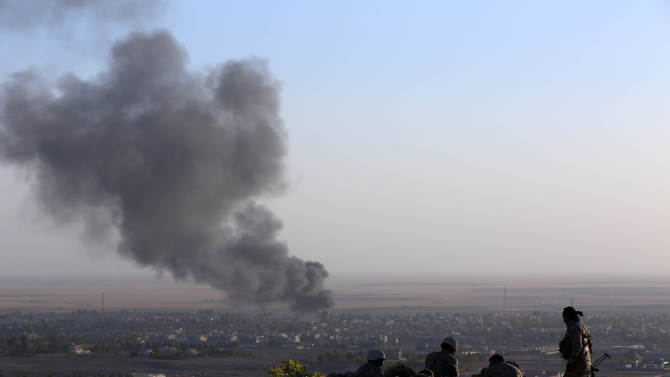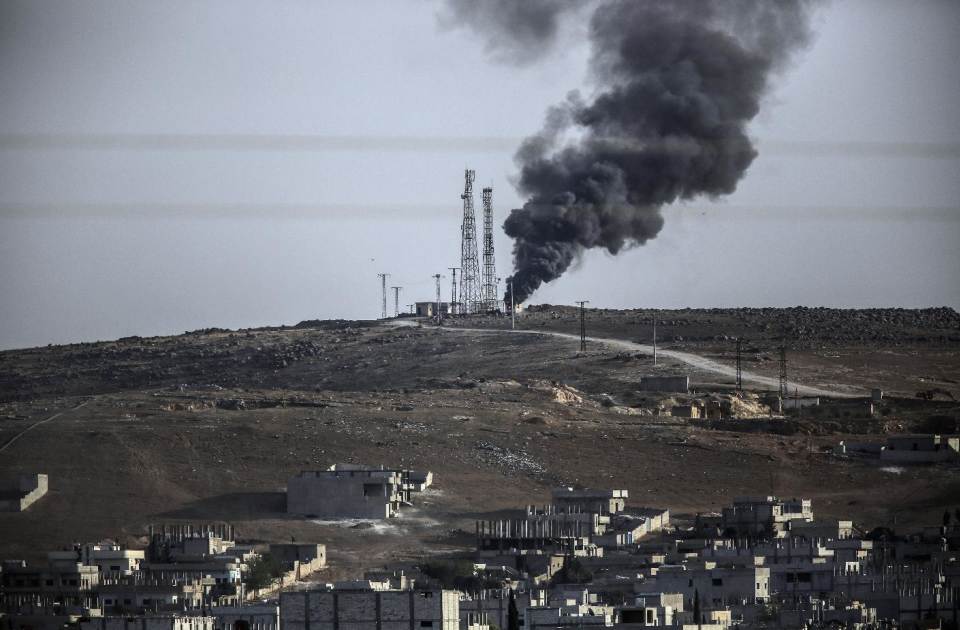Hope and Defiance
"I know all about what Canada is doing. You had a government minister here recently and he made us some promises."
"It was very good what the Americans did here before and it will be very good what the Canadians will soon do in Iraq."
"We had to leave. We were so nervous because everybody knew that Daesh had killed everyone they found in some towns."
"When we came back after the bombing we found that Daesh had done some terrible things such as killing dogs they had booby-trapped with bombs."
"Those people claim to be Muslims but they have no religion except killing. That is their belief."
Behar Namiq, shopkeeper, Makhmur, Iraq
"We still badly need more weapons. But even more than new weapons, we need people to train peshmega how to use them because we have no previous experience of heavy weapons."
"The gun [a 155mm M777 artillery gun] was given to the Iraqi army by the United States and fell into Daesh (Islamic State) hands during the spring and now belongs to the peshmerga."
Lt. Gaylan Ahmed, peshmerga military
 |
| Iraqi Kurdish Peshmerga fighters look on as smoke billows from the town Makhmur during clashes with Islamic State (IS) militants on August 9, 2014 (AFP Photo/Safin Hamed) |
American warplanes helped to dislodge Islamic State from Makhmur in Iraq a few weeks ago. Townspeople are slowly returning, grateful that the U.S. liberated their impoverished town from the clasp of the jihadists whose front lines are a mere ten kilometres distant. They're now awaiting the arrival of six RCAF fighter-bombers set to join the international air campaign against the terrorists, the sooner the better, they agitate.
All the adult males had fled into hills nearby the town after dispatching women and children to the presumed safety of Irbil, the Kurdish capital, about a 40-minute drive from town. The liberated town remains tense with expectation since Islamic State forces remain close by, equipped with artillery guns that have the capacity to reach over 20 kilometres. Soldiers belonging to the peshmerga, or associated with several other armed Kurdish militias man guardposts and checkpoints on the roads.
 |
| Smoke rises from the Syrian town of Ain al-Arab, known as Kobane by the Kurds, seen from the Mursitpinar border crossing in the southeastern town of Suruc, Turkey, on October 3, 2014 (AFP Photo/Bulent Kilic) |
The officer of the watch at the main peshmerga base, Lt. Gaylan Ahmed, explains the presence of the battered artillery gun; battered because it had sustained a direct hit by a U.S. missile, but given pride of place on the peshmerga base, since even in its current state it represents a weapon far superior than what they possess. A Turkish Kurd, a militia man aligned with the Kurdistan Worker's Party (PKK) boasts of their military exploits, battling the Islamic State.
"We kicked Daesh's ass up in the mountains first. The fighting down here was intense, too, but it only took one hour", said Aslan Guany. "It's good to hear that Canada and other countries are coming here to fight on the Kurdish side even though we do not have direct links with them", he added. Turkey, on the other hand, does have direct links with them, and as far as Turkey's Erdogan is concerned, no finger will be lifted in aid of the Kurds, irrespective of where they live, to protect them from Islamic State.
A Canadian advance party of engineers and logisticians are slated to be the first to reach the area, dispatched from Canada. Their job will be to reconnoitre the airfields meant for Canadian jets, surveillance aircraft and in-air refuelling tankers to fly out of. Maintainers and weapons specialists along with six supersonic jets and their pilots will set out in the days following.
Labels: Canada, Intervention, Iraq, ISIS, Kurds, United States, Violence

<< Home